10 Signs of Overcooked Chicken to Help You Avoid Dry Meals
Signs of overcooked chicken include tough texture, dull color, burnt smell, dryness, and lack of juiciness. Avoid overcooking with proper timing and use of a meat thermometer.
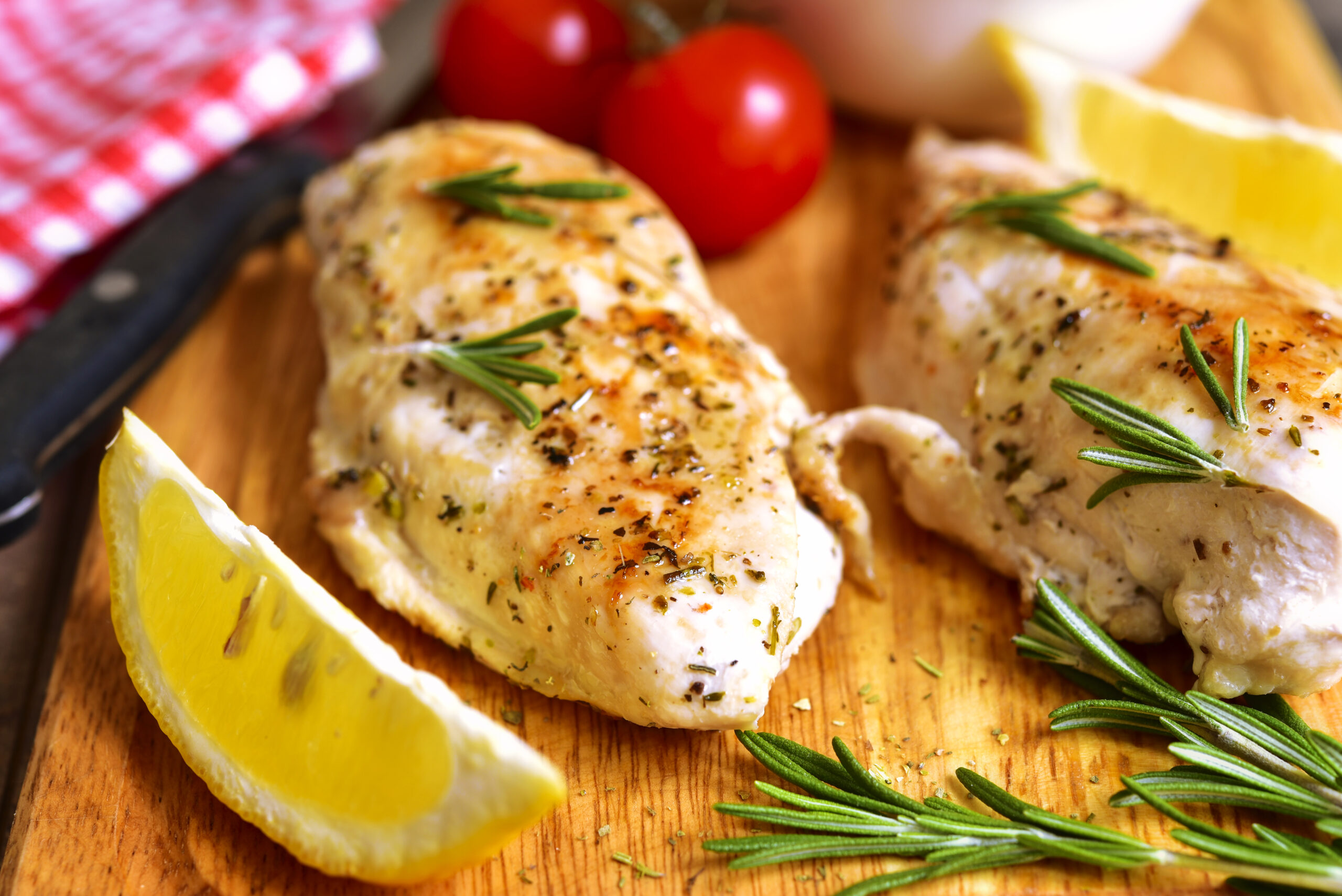
Cooking chicken to perfection is an art that requires attention to detail and an understanding of the signs that indicate when it’s just right or overdone. Recognizing the symptoms of overcooked chicken can save your meal from becoming a dry disappointment.
Perfectly cooked chicken, with its succulence, flavor, and optimal moisture, is a culinary aspiration. Navigating the thin line between undercooked and overcooked is crucial for a delightful meal, making it essential to recognize indicators of overcooking to elevate both your cooking skills and dining experience.
Disclosure: As an Amazon Associate, this site earns from qualifying purchases. Thank you!
1. The Texture Test: What to Feel
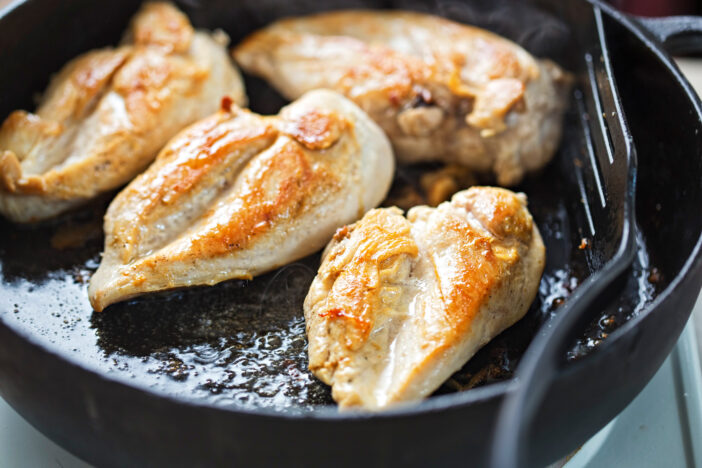
When you suspect your chicken might be overcooked, the first thing to check is its texture. Overcooked chicken feels tough and rubbery to the touch. If you’re slicing into a breast and your knife doesn’t glide through with ease, chances are it’s been on the heat too long.
Another texture test is to pull a small piece off with your fingers. If the meat is fibrous and difficult to tear, it’s likely overdone. Properly cooked chicken should be tender and should be pulled apart without much resistance.
3. Color Clues: Looks Can Tell
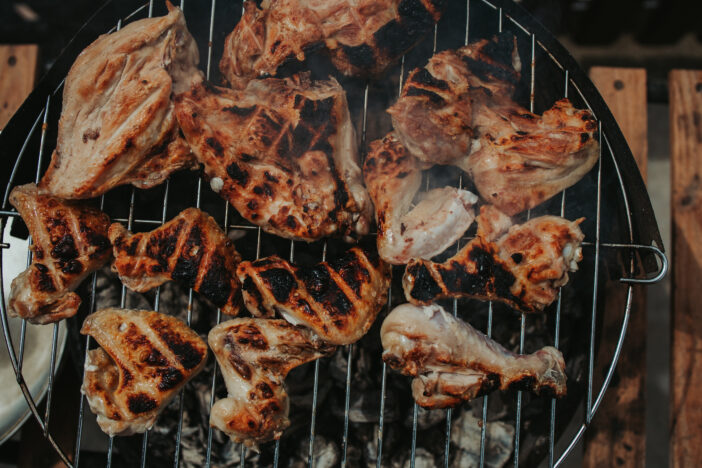
The color of your chicken can be a dead giveaway of its doneness. While you want the exterior to have a golden-brown hue, indicative of a nice sear, the interior should be white throughout. If the meat looks dull and lifeless, it’s probably overcooked.
Conversely, if you see any pink near the bone or the juices running red, it’s undercooked. But beware of letting the fear of undercooking lead you to the opposite extreme. The goal is a uniform white without any tinges of brown or gray, which suggests overcooking.
4. Aroma Alert: Smell the Signs
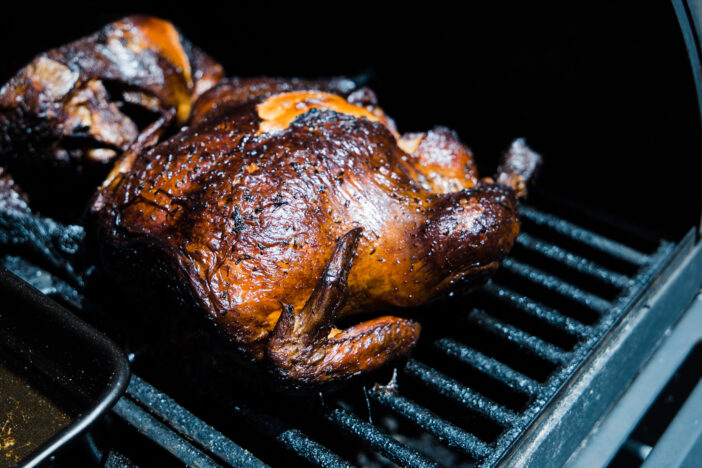
The aroma of your chicken can also signal whether it’s been overcooked. A well-cooked chicken emits a savory smell that’s appetizing and inviting. If instead you’re greeted with a slightly burnt or overly caramelized odor, this could be a sign that your chicken has spent too much time cooking.
Pay attention to the smell as you cook. If at any point it shifts from pleasant to acrid, it’s time to take immediate action. This change in aroma is often a precursor to the taste and texture being compromised.
5. Tasting Tells the Tale
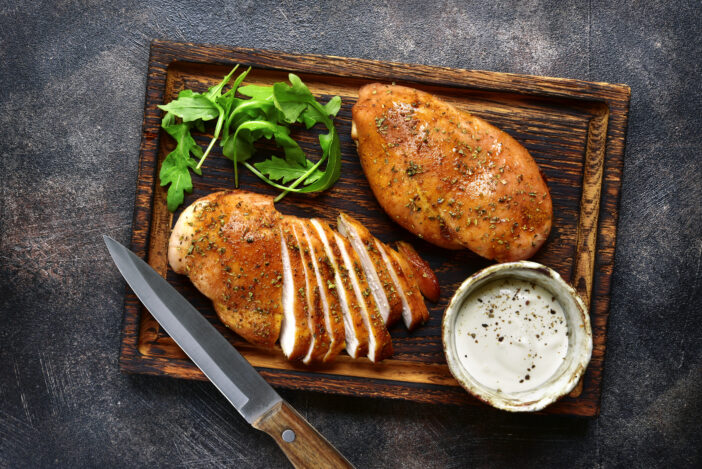
Ultimately, the proof is in the tasting. Overcooked chicken is not only tough but also lacks moisture, leading to a dry and unappetizing experience. The meat might also taste bland as the natural flavors have been cooked out.
During cooking, it’s wise to cut a small piece and sample it for doneness. If the meat is chewy and lacks juiciness, it’s an indication that it’s overcooked. Remember that chicken continues to cook even after it’s removed from the heat, so factor this in when tasting.
6. Timing Troubles with Chicken
Timing is critical when cooking chicken, and it’s one of the most common reasons for overcooking. Each cut requires a different amount of time to cook through without drying out. For example, bone-in pieces typically take longer than boneless cuts.
Using a timer and keeping a close eye on the clock can prevent overcooking. However, relying solely on time without considering the size and type of cut can lead to errors. It’s best to use timing as a guideline while also employing other methods to check for doneness.
7. Moisture Matters: Juiciness Guide
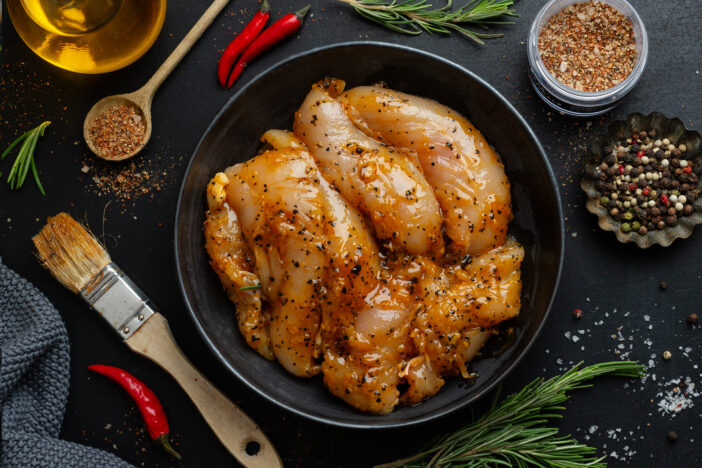
Moisture is the essence of a juicy, delicious chicken. When chicken loses its natural juices, it becomes dry and tough. One sign of overcooked chicken is when there’s a lack of moisture both on the surface and within the meat.
One way to gauge moisture is by checking the juices that run out of the chicken when you cut into it. They should be clear, not cloudy. If there are hardly any juices, or they’ve all evaporated, it’s a sign the chicken is overdone.
8. Avoiding Overcooking Mistakes
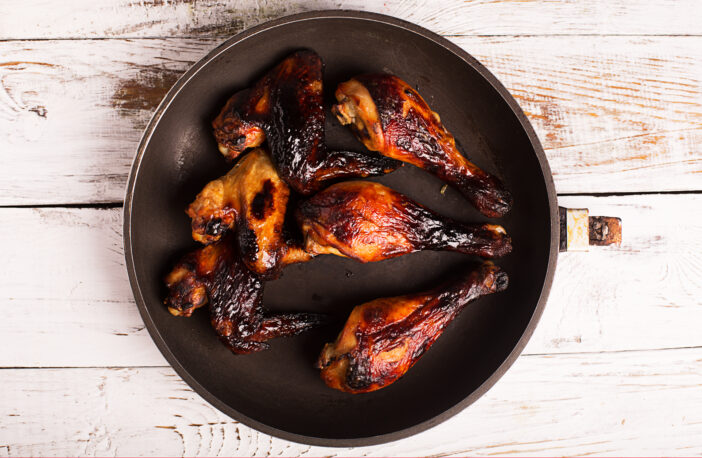
Preventing overcooked chicken begins with understanding your heat source and how it interacts with different cuts of chicken. High heat can cook the exterior too quickly, leaving the inside underdone or causing the entire piece to dry out if left for too long.
Use a meat thermometer to ensure accuracy, aiming for an internal temperature of 165°F (75°C). Also, consider the carryover cooking effect, where chicken continues to cook from residual heat after being removed from the source of heat. Resting your chicken properly allows it to finish cooking gently without drying out.
9. Rescuing Dry Chicken Dishes
If you’ve ended up with overcooked chicken, all is not lost. There are ways to rescue the dish and add back some moisture. One method is to slice the chicken and simmer it in a sauce or broth for a few minutes to help rehydrate the meat.
Another option is to shred the chicken and mix it with a moist ingredient, like mayonnaise or a dressing, for a chicken salad. This can help mask the dryness and give the chicken a second life in a new dish.
10. Perfect Poultry: Practice Tips
Mastering the art of cooking chicken perfectly takes practice and patience. Start by familiarizing yourself with the different cuts of chicken and how they respond to various cooking methods. Pay attention to the visual, tactile, and aromatic cues that indicate doneness.
Keep practicing and experimenting with different techniques, such as brining or marinating, which can help keep chicken moist. Remember, the more you cook, the better your instincts will become in gauging when chicken is cooked just right.
By learning to recognize the signs of overcooked chicken, you can avoid serving dry poultry and instead delight in succulent, flavorful meals. With practice and attention to detail, you’ll be on your way to achieving perfect poultry every time.






